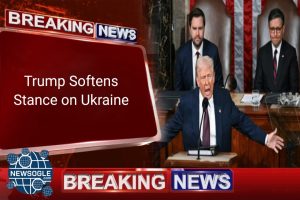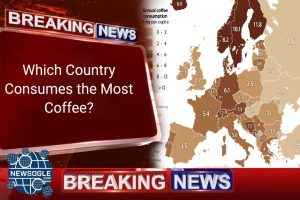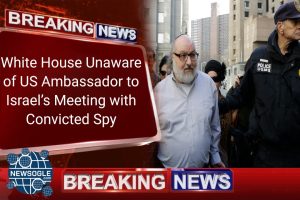Introduction
In a historic and unprecedented move, South Korea President Yoon Suk Yeol was arrested on January 15, 2025, making him the first sitting president in the nation’s history to face arrest. This shocking development comes amidst serious allegations of insurrection related to his brief declaration of martial law in December 2024. The arrest has sent shockwaves through the political landscape of South Korea, raising questions about governance, accountability, and the rule of law.
Table of Contents
Background of the Situation
Yoon Suk Yeol, a former prosecutor who rose to prominence as a member of the conservative People Power Party, took office in May 2022. His presidency has been marked by significant political challenges, including economic struggles and rising tensions with North Korea. However, it was his controversial decision to impose martial law on December 3, 2024, that ultimately led to his impeachment by the National Assembly on December 14, 2024.
The martial law declaration was intended to quell protests and unrest following widespread dissatisfaction with Yoon’s administration. However, it was met with immediate backlash from opposition parties and civil society groups, who viewed it as an overreach of power. The National Assembly quickly voted to nullify the martial law decree, prompting Yoon to send armed troops to seize control of the legislature and detain political adversaries.
The Arrest
The arrest operation was executed by South Korea’s Corruption Investigation Office for High-Ranking Officials (CIO), which had been investigating Yoon for insurrection. Reports indicate that approximately 3,000 law enforcement officers were mobilized for the operation, which took place early in the morning. This was the second attempt to apprehend Yoon; a previous effort on January 3 had failed due to resistance from his security team.
The Operation
On January 15, investigators arrived at Yoon’s residence in Seoul equipped with a court-issued warrant. They faced initial resistance but managed to gain entry without significant confrontation this time. The operation involved using ladders and other equipment to bypass barriers set up by presidential security personnel.
As investigators approached Yoon’s residence, there was a palpable tension in the air. Lawmakers from Yoon’s party and his legal team attempted to obstruct the arrest but ultimately could not prevent it. After his arrest, Yoon was seen being escorted away in a convoy under police protection.
Reaction from Yoon Suk Yeol
Following his arrest, Yoon released a pre-recorded video message expressing his dismay over what he described as a “complete collapse of the rule of law” in South Korea. He stated that he chose to comply with the investigation to prevent any potential “bloodshed” between law enforcement and his security detail.
In his message, Yoon emphasized that he did not acknowledge the legality of the investigation but felt compelled to cooperate to avoid further violence. His statement reflected both defiance and resignation as he faced serious charges that could have far-reaching consequences for his political future.
Political Implications
Yoon’s arrest has profound implications for South Korean politics. As the first sitting president to be arrested, it raises questions about accountability at the highest levels of government. The situation has sparked widespread debate about the balance of power between elected officials and investigative agencies.
Public Response
Public reaction to Yoon’s arrest has been mixed. Supporters argue that he is being unfairly targeted due to political motivations from opposition parties. Conversely, critics view this as a necessary step towards accountability and transparency in governance.
Protests have erupted outside Yoon’s residence and other locations across South Korea as citizens express their views on the unfolding situation. Some view this as a pivotal moment in South Korea’s democratic evolution, while others fear it could lead to further instability.
Impact on Future Governance
The fallout from this incident is likely to affect future governance in South Korea significantly. With Yoon’s presidency now clouded by controversy and legal challenges, questions arise about who will lead the country moving forward. The National Assembly may face pressure to expedite discussions regarding succession plans or interim leadership arrangements.
Political analysts suggest that this situation could lead to increased polarization among political factions within South Korea. As both supporters and opponents of Yoon rally around their respective positions, there is potential for heightened tensions in an already divided political landscape.
Legal Proceedings Ahead
As per South Korean law, Yoon can be detained for up to 48 hours for questioning regarding insurrection allegations before being formally charged or released. If found guilty of insurrection—an offense punishable by life imprisonment or even death—Yoon’s legal troubles could have lasting repercussions not only for him but also for the People Power Party he represents.
Investigation Focus
The investigation will likely focus on several key areas:
- Martial Law Declaration: Analyzing the circumstances surrounding Yoon’s decision to impose martial law and whether it constituted an illegal act.
- Use of Force: Scrutinizing whether sending troops into parliament violated constitutional norms and democratic principles.
- Political Motivations: Investigators will also assess whether there were ulterior motives behind Yoon’s actions that could be classified as insurrection.
Conclusion
The arrest of President Yoon Suk Yeol marks a historic moment in South Korea’s political landscape. As investigations unfold and public sentiment continues to evolve, all eyes will be on how this situation develops in the coming weeks and months.
This incident serves as a reminder of the delicate balance between power and accountability in democratic societies. It also highlights the importance of upholding the rule of law—even at the highest levels of government—to maintain public trust and ensure stability within the nation.
As South Korea navigates this unprecedented crisis, it will be crucial for all stakeholders—government officials, civil society organizations, and citizens—to engage constructively in discussions about governance reform and democratic principles moving forward.
The future remains uncertain for both President Yoon and South Korea as a whole; however, one thing is clear: this event will have lasting implications for governance and accountability in one of Asia’s most dynamic democracies.
Citations:
[1]
[2]
[3]
[4]
[5]
[6]
[7]
[8]
[9]





